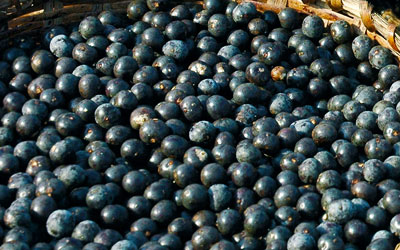Acai, an Amazonian berry, is one of the latest superfoods on the market. The main ingredient in the popular acai bowls, it has been assigned various health benefits.1 While many of them have already been validated by science, some still remain unconfirmed or poorly understood. This study assessed the effects of acai pulp on preventing oxidative damage.
The Study
There were 40 healthy women, between the ages of 18 and 35, participating in this Brazilian nutritional intervention. They were instructed to enrich their regular diets with 200 grams of acai pulp per day for four weeks.
To evaluate acai's effects on antioxidant enzymes and biomarkers of oxidation, women had their blood samples tested before and after the trial. Their blood pressure and anthropometric parameters (e.g. weight, body mass index, waist circumference etc.) were also recorded.
The Results
Researchers found that eating acai increased the activity of catalase, a key antioxidant enzyme. Acai consumption also increased the total antioxidant capacity and reduced the levels of reactive oxygen species.
Moreover, it decreased the levels of protein carbonyl groups (markers of protein oxidative damage) and increased those of sulfhydryl groups (markers of antioxidant capacity).
Eating acai did not cause changes in women's weight, body mass index, or other anthropometric parameters. It also had no effect on blood pressure.
What Does this Mean?
Published in the Nutrition journal, these findings suggest that acai has potent antioxidant properties. It has not only shown to prevent oxidative damage, but also improve antioxidant status in female participants.
By increasing the activity of antioxidant enzymes and decreasing the production of reactive oxygen species, acai can be a valuable tool in protecting the body against oxidative damage and the development of chronic diseases that it promotes.
Other herbs with antioxidant properties are camu camu, blueberries, goji berries, and carrots.
Sources
- Nutrition, Açai (Euterpe oleracea Mart.) pulp dietary intake improves cellular antioxidant enzymes and biomarkers of serum in healthy women, 2016
Footnotes:
- Mayo Clinic. (2020). What are acai berries, and what are their possible health benefits? Retrieved November 11, 2021 from https://www.mayoclinic.org/healthy-lifestyle/nutrition-and-healthy-eating/expert-answers/acai/faq-20057794







